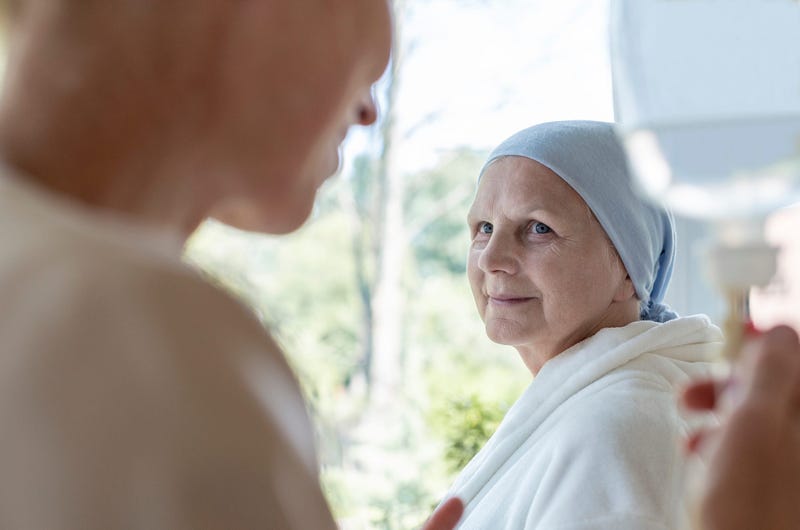
Eric Chaffin, Managing Partner of Chaffin Luhana LLP, was a guest on Newsradio 1020 KDKA’s Marty Griffin show on December 5, 2019 where he and Marty discussed the tragic death of 9/11 first responder Nick Ursta from mesothelioma caused by asbestos exposure, as well as many other cases involving cancer that Chaffin is representing.
By way of background, in 2018 alone, 1,735,350 new cases of cancer were diagnosed in the United States and 609,640 people died from the disease, according to the National Cancer Institute (NCI). In 2016, there were an estimated 15.5 million cancer survivors in this country, and that number is expected to increase to 20.3 million by 2026.
It’s bad enough when people develop a seemingly unpreventable disease. It’s worse when they discover after the fact that their cancer diagnosis may have been due to another’s negligence or bad acts.
The Congressional vote came after months of lobbying by first-responders, their families, and others, and after former New York City Police Department detective Luis Alvarez, who suffered from cancer after cleaning up debris at Manhattan’s Ground Zero, passed away at age 53.
According to the U.S. Department of Justice (DOJ), the 9/11 Victim Compensation Fund was created shortly after the terrorist attacks on September 11, 2001, to provide compensation for any individual or representative of a deceased individual “who suffered physical harm or was killed as a result of the terrorist-related aircraft crashes of September 11, 2001 or the debris removal efforts that took place in the immediate aftermath of those crashes.”
The original fund operated from 2001 to 2004. In 2011, President Obama signed a law reactivating it through October 2016. In 2015, he signed another law reauthorizing the fund again, extending it until December 18, 2020.
Meanwhile, the number of people affected by the 9/11 disaster has continued to increase, mainly because of the time lag involved in developing and diagnosing cancer. About 22,000 people have already received payments from the fund, but just this year an additional over 17,000 claims were under review, with many thousands more predicted to be filed.
Earlier this year, it became clear that funds were running out, and officials announced they may have to reduce compensation to victims. That’s when Jon Stewart and surviving first responders pushed Congress to commit to the fund again this year. The new bill extends the expiration date through 2090, essentially covering surviving 9/11 responders for the rest of their lives.
On March 20, 2015, the International Agency for Research on Cancer (IARC) determined that the herbicide glyphosate, which is the main ingredient in Roundup, was “probably carcinogenic to humans.” The statement sent a new ripple of concern through farmers, landscapers, and the general public alike, and started an intense debate concerning glyphosate’s potential connection to cancer.
Many studies have provided evidence that glyphosate and Roundup may increase the risk of cancer, but other studies have found conflicting results. Bayer and Monsanto maintain that their products are safe when used as directed, but thousands of plaintiffs think otherwise and have filed lawsuits against the manufacturers in courts around the country.
The first three Roundup cases to go to trial were all decided in favor of the plaintiffs, with juries awarding compensatory and punitive damages in the multi-million-dollar range. Bayer appealed every one and got the awards reduced, but it continues to face increasing scrutiny and criticism.
The fourth trial was originally scheduled to occur this year in New Orleans, but that case has been delayed multiple times. Meanwhile, the parties have been ordered into mediation in the consolidated litigation in California, and there have been rumors that Bayer may be willing to settle for a “reasonable” amount.
Yet millions of people are now being told that the over-the-counter and prescription heartburn medications they used for years may have subjected them to a potent cancer-causing chemical.
In September 2019, the FDA warned for the first time that Zantac and generic ranitidine products could be contaminated with N-Nitrosodimethylamine (NDMA), a chemical identified by the IARC and the Environmental Protection Agency (EPA) as probably carcinogenic to humans.
These medications were prescribed to treat heartburn, sour stomach, ulcers, and gastroesophageal reflux disease (GERD). Many people took them multiple times a day for years and now must carry the heavy burden of the knowledge that they may have been exposed to low levels of NDMA that entire time.
The World Health Organization (WHO) states that results of human studies so far can’t be used to “derive a quantitative risk of cancer,” though they do support that NDMA is positively associated with at least gastric or colorectal cancer.
After the FDA’s warning, companies began testing their products, and many found NDMA at levels higher than those deemed safe by the FDA. Several recalls have followed, implemented by generic manufacturers and by Zantac manufacturer Sanofi, who recalled Zantac in October 2019.
Many who were regular users of ranitidine and/or Zantac and then were diagnosed with cancer have filed lawsuits in court, seeking compensation to cover their medical expenses and lost wages. Considering the millions of people who used these products, it is expected that these lawsuits will increase substantially in the coming months.
If you were affected by any of the above, you don’t have to manage the financial fallout on your own. Don’t hesitate to seek help either from the available 9/11 funds and programs or from a Roundup or Zantac lawyer. Chaffin Luhana LLP is representing cancer victims in these programs and lawsuits.
